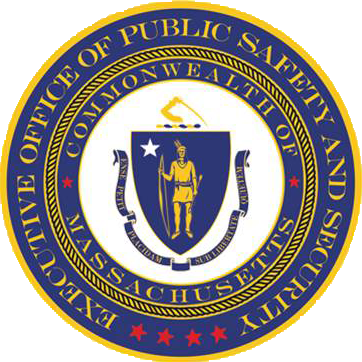- Executive Office of Public Safety and Security
- Massachusetts Department of Correction
- School of Reentry
Media Contact
Elaine Driscoll, Director of Communications and Policy
Boston — Yesterday, the Healey-Driscoll Administration, state officials, and community stakeholders participated in a roundtable discussion and tour of the School of Reentry (SOR), an immersive reentry program in Boston for incarcerated people preparing to return to community. The Executive Office of Public Safety and Security (EOPSS) and the Massachusetts Department of Correction (DOC) convened the forum to engage with stakeholders and individuals with lived experience to highlight the importance of effective reentry planning, examine program impacts on returning citizens, and discuss the ongoing implementation of essential educational opportunities and reentry services.
The Healey-Driscoll Administration’s Fiscal Year 2024 (FY24) Budget invests approximately $10 million in educational opportunities and reentry programs for returning citizens, including $3.4 million to expand High School Equivalency Test (Hi-SET) and hybrid learning opportunities, $5.1 million to maintain learning opportunities through personal tablets, and $1.5 million to support SOR and the Credible Messengers mentorship program. The Administration’s first H.1 budget dedicates vital funding to facilitate successful reintegration by providing those preparing for post-release with expanded access to education, job training for in-demand skills, and transformative mentorship programs.
“Our Administration’s first budget reflects our dedication to empowering individuals with meaningful programs and equitable pathways that advance successful reentry, disrupt cycles of economic adversity, and strengthen communities,” said Governor Maura Healey. “Our investment in quality educational opportunities and reintegration planning will improve the transition from incarceration to community by increasing access to sustainable employment, improving economic equality, and tearing down structural barriers.”
“The budget’s proposed investments in reentry services stem from our shared belief in the human capacity for positive decision-making and lasting personal change,” said Lieutenant Governor Kimberley Driscoll. “From the first outreach to the conclusion of these services, clients learn important life skills to live in a world that likely looks very different from the day they entered correctional care. I commend the program leaders whose client-centered approach empowers these individuals which makes our neighborhoods safer in turn.”
Founded in 2016 by EOPSS, SOR is a 12–18-month residential school located at the Boston Pre-Release Center, a DOC minimum security men’s facility. SOR deploys an all-inclusive model that encompasses education, vocational training, counseling, job preparation and the development of a moral compass in a returning citizen’s cognitive ability to make positive decisions upon release.
In partnership with various Massachusetts colleges and universities, SOR has developed high quality college-in-prison programming designed to empower incarcerated individuals as they prepare to rejoin the community. Inside-outside classes are college level courses that bring students from inside a carceral setting and students from outside collegiate institutions together to take the same credit-bearing classes. Enrollment in inside-out classes offer a transformational learning opportunity for all students to see their shared humanity and provide opportunities for them to learn from one another.
SOR has pioneered and expanded partnerships with Benjamin Franklin Cummings Institute of Technology, Brandeis University, and Massachusetts Institute of Technology to provide inside-out programming both in-person and virtually assisting students as they reach their full potential and prepare for reentry.
“EOPSS, in close collaboration with our partners, work tirelessly to implement innovative and results-driven programming designed to create successful pathways for those preparing for life after incarceration.” said Secretary of Public Safety and Security Terrence Reidy. “Beyond vital funding, the Administration’s budget represents an investment in compassionate care and the confidence that equitable access to services and support is the difference between surviving and thriving upon one’s return to family and community.”
“Investments in educational opportunities and reentry programs such as SOR and Credible Messengers have the power to lift returning citizens and transform individual outcomes,” said EOPSS Undersecretary of Criminal Justice Andrew Peck. “We are grateful to our many stakeholders and partners for their dedication in supporting the advancement of these life-changing programs.”
“DOC remains committed to ensuring that incarcerated individuals have expanded access to education, job training, and reentry initiatives. Our ongoing implementation of key program enhancements, such as multi-lingual instruction and personal tablets for hybrid instruction, will advance our shared goal of improving people’s lives and reducing recidivism,” said DOC Commissioner Carol Mici. “The Administration’s investment in correctional education and reentry services is fundamental to the success of our rehabilitation mission.”
The H.1 budget also invests in the Credible Messengers program, a mentoring initiative to help justice-involved individuals and their families successfully navigate the transition back into the community. The program connects returning individuals with mentors, known as “credible messengers.” The messengers, who are EOPSS employees, have similar backgrounds and shared lived experiences to those exiting the criminal justice system and as such are uniquely positioned to serve as credible sources of advice and support. Participation in the Credible Messenger program is voluntary and offered to individuals expected to be released within 90-120 days from DOC facilities. Since the program’s inception, messengers have worked with 299 people returning to community.
“SOR’s education, job training and mentoring services are based on the core belief that with active stakeholder collaboration and access to essential funding, we can deliver transformative resources to uplift, stabilize, and re-engage returning citizens. Our holistic and restorative approach bridges the gaps between individuals and the support systems available, leading to more effective life planning and a reduction in re-offending behaviors,” said Lisa Millwood, Executive Director of the School of Reentry.
Other reentry initiatives funded by the FY24 budget include:
- No Cost Calls: The FY24 budget recommends unlocking $20 million to provide incarcerated individuals in state prisons with up to 1,000 minutes per month of no-cost phone calls.
- Peer-to-Peer Mentoring Program: The FY24 budget adds $600,000 to pilot a peer-to-peer program designed to develop foundational relationships and structures that supports growth, foster respect, and enhances overall wellness and culture.
- State ID Program: The Administration offers a newly enhanced and streamlined process to provide individuals with a government-issued photo identification card upon release from the DOC. As an essential tool for successful community reintegration, the Massachusetts ID Card Program empowers returning citizens by removing barriers to critical reentry services following incarceration.
- Transitional Housing: The FY24 budget recommends $1.5 million (at Trial Courts) for sober and transitional housing, a $500,000 increase over FY23 GAA which is projected to support 450 additional individuals (1,688 individuals total).
- The Last Mile: DOC will soon launch an innovative partnership with The Last Mile (TLM), a leading provider of 21st-century professional skills training programs and job placement support for incarcerated people. TLM's computer coding and technology education program provides students with marketable coding skills and other web development fundamentals to help participants prepare for meaningful and self-sustaining employment upon release.
- The BRAVE Unit: Recognizing the need to support emerging adults living under its care, DOC created the Building Responsible Adults through Validation and Education (BRAVE) Unit at MCI-Concord, a program that provides education and builds support for successful fatherhood. With a capacity of 45 emerging adults, the participants live in community with 15 fathers who DOC engages as mentors. Together, the emerging adults, most between 18 and 26 years old, complete programming focused on life skills, including parenting, in a dedicated space with unit-specific common space and a visitation room for visiting children to play.
- Restorative Justice Director: EOPSS created a dedicated role hiring a Director of Restorative Justice. The Director is tasked with, among other projects: researching the efficacy of existing restorative and lived experience programs and practices at DOC; developing strategies, resources, initiatives, and partnerships to address restoration and reentry needs of incarcerated people and staff across Secretariat agencies; and creating a peer-to-peer mentor program with the incarcerated population.
###

